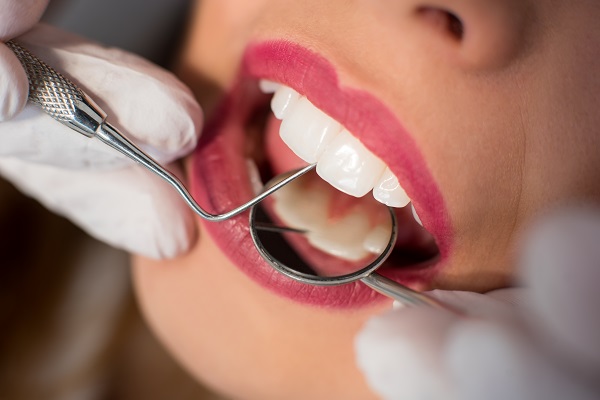Emergency Dentistry: Infection and Swelling

Infection and swelling mean that you have a major problem in your mouth that needs emergency dentistry, so you should seek a dentist right away. Dental emergencies can change the course of your life when it comes to your face and smile. If you prioritize seeing a dentist right away, it can save you tons of time and money later. You will want to see a dentist for any of the emergencies listed below.
This list is not exhaustive, but it should help you recognize many common dental emergencies. Seek dental treatment immediately if you notice any of these issues.
Determining the need for emergency dentistry
Here are signs and symptoms that mean it is time to have a dentist take a look at the mouth.
1. A seriously damaged tooth
Miniscule tooth chips or cracks can probably wait until the normal dentist hours. But large fractures or tooth breaks need immediate attention from a dentist. Significant pain normally accompanies these dental problems. If the inner tissue of the tooth is damaged, it will need substantial work.
2. Excruciating tooth pain
Toothaches cause suffering and can escalate rather quickly. Tooth pain that elevates into a higher level of pain needs to be looked at. In many cases, it can mean that an infection has started in the root or tooth itself. Contacting the dentist at the first open moment would be the best cause of action. The dentist can diagnose the root cause of the patient’s pain and perform appropriate treatments.
3. Swelling and inflammation
Swelling in the gums might be caused by an infection in the gums or teeth. An abscess could be the cause of such inflammation. An abscess is a pocket of pus that forms at the root of a tooth or near it. The condition can be extremely painful and probably will not go away by itself. The ailment needs to be treated so it does not spread to other parts of the mouth.
4. Knocked-out tooth
If an adult loses a tooth while playing a sport or biting into food, contacting a dentist should be their first priority. The tooth needs to be put in a container that has milk and saliva in it to keep it alive. The tooth can be re-inserted if the person makes it to a dentist within a few hours of the injury. If it is too late to reinsert the tooth or it broke apart due to the accident, it can be replaced with an oral prosthetic, like an implant.
Get emergency dentistry care
Our dentist is here to help, so call or visit our Albuquerque clinic if you are dealing with dental issues that count as an emergency. Our dentist will evaluate your condition and recommend the right course of action.
Request an appointment here: https://saluddentalgroupnm.com or call Salud Dental Group at (505) 608-7517 for an appointment in our Albuquerque office.
Check out what others are saying about our dental services on Yelp: Emergency Dentistry in Albuquerque, NM.
Related Posts
A general dentist often recommends a dental sealant for patients who want to take extra preventative measures to ensure the health and safety of their teeth. A sealant can be utilized if they feel like your molars and other teeth with deep grooves are at risk of suffering damage. If you consider a dental sealant…
Considering cosmetic dental work from a general dentist? Although cosmetic dentistry is its own field, general dentists also offer an array of procedures that can be used to improve the way that the teeth look. There are a lot of different procedures that can be performed in a general dentistry setting. Keep reading to find…
Persistent oral pain or extensive decay may send a patient to a general dentist, who must then advise whether the patient should try to save the tooth or have it pulled. To save the tooth, a root canal procedure may be necessary. This involves removing the infected pulp of the tooth and replacing it with…
A general dentist may recommend a mouthguard to protect the teeth from damage that can occur from teeth grinding, sports injuries, or physically strenuous jobs. Grinding can be difficult to treat, but a patient can be helped by a thin mouthguard on the upper or lower teeth to prevent friction from occurring. Other types of…
